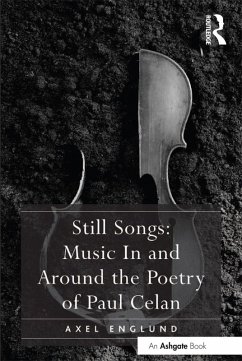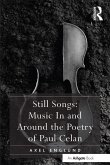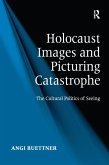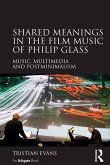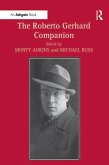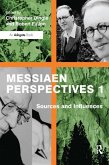What does it mean for poetry and music to turn to each other in the shadow of the Holocaust, as means of aesthetic self-reflection? How can their mutual mirroring, of such paramount importance to German Romanticism, be reconfigured to retain its validity after the Second World War? These are the core questions of Axel Englund's book, which is the first to address the topic of Paul Celan and music.
Dieser Download kann aus rechtlichen Gründen nur mit Rechnungsadresse in A, B, BG, CY, CZ, D, DK, EW, E, FIN, F, GR, HR, H, IRL, I, LT, L, LR, M, NL, PL, P, R, S, SLO, SK ausgeliefert werden.

